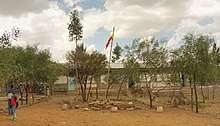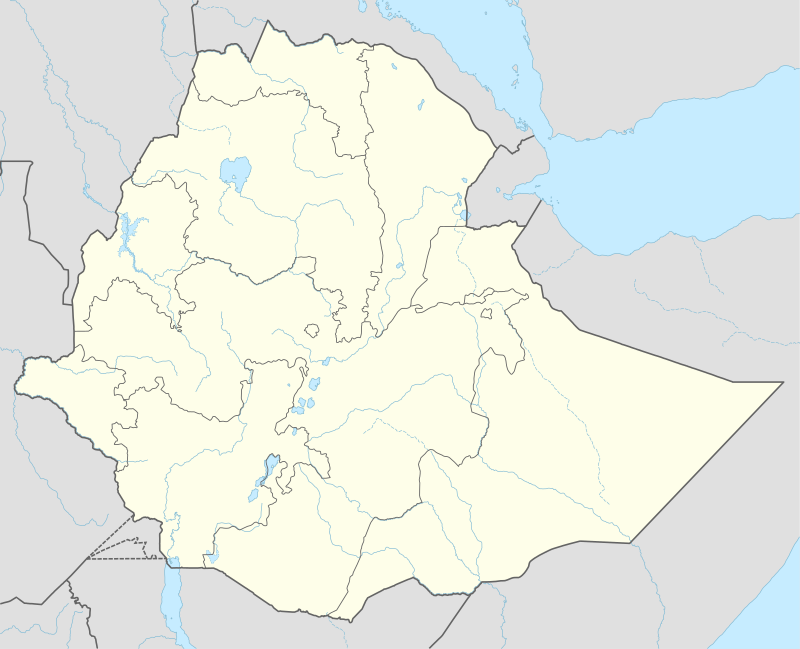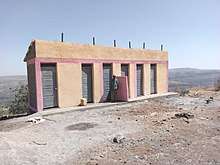Kolal school
Kolal School is a public school for grades 0 (preparatory) through 8 in Kolal, Debre Nazret, Dogu’a Tembien, Tigray, Ethiopia.[1]
| Kolal school ኮላል ቤት ትምህርቲ | |
|---|---|
 | |
| Location | |
 Kolal school | |
Kolal Debre Nazret municipality , | |
| Coordinates | 13.5195°N 39.3263°E |
| Information | |
| Type | Public School |
| School district | Dogu’a Tembien |
| Staff | 10 teachers |
| Grades | 0–8th |
| Gender | Co-Educational |
| Number of students | 294 |
| Language | Tigrinya, English |
| Data pertaining to | 2018[1] |
Description
The Kolal School has 7 class rooms. As of 2018, the school had 294 students, 127 girls and 167 boys.[1] There were:
- 40 students in one class in Grade 0
- 35 students in one class in Grade 1
- 30 students in one class in Grade 2
- 30 students in one class in Grade 3
- 38 students in one class in Grade 4
- 29 students in one class in Grade 5
- 34 students in one class in Grade 6
- 24 students in one class in Grade 7
- 35 students in one class in Grade 8
Water and sanitation

In 2018, water was not available at the school. The school had a roof water harvesting, but it was damaged. There were no specific facilities for girls handling menstrual hygiene;[1] this is a major reason for adolescent girls dropping out from school.[2][3] Up to 2018, there was a small toilet building, in poor condition.[1]
In 2019, the School WatSani project has built an Ecosan toilet building at this school.[4][5] Through nudging approach, the students are sensitised for using the sanitation and water facilities.[4]
Transportation
All children travel to school on foot. Many students will walk more than an hour (sometimes two), twice a day, to come to school.[1]
Other challenges
The smaller children often miss school because of fear for hyenas on the way.[1]
See also
- Education in Ethiopia
- List of schools by country
- List of universities and colleges in Ethiopia
References
- Goele Treuttens and Linde Van Der Vurst, 2018. Baseline study about water and sanitation in ten selected schools by the project ‘School – Watsani’ and in the community around the schools in ten different villages in the Woreda Dogu’a Tembien. HOWest, Bruges, Belgium.
- Socio-demographic profile, food insecurity and food-aid based response. In: Geo-trekking in Ethiopia's Tropical Mountains - The Dogu'a Tembien District. SpringerNature. 2019. ISBN 978-3-030-04954-6.
- What do we hear from the farmers in Dogu'a Tembien? [in Tigrinya]. Hagere Selam, Ethiopia. 2016. p. 100.
- Griet Verrewaere, 2019. Report of latrine use and behaviour amongst students - The nudging approach at School-Watsani. HOWest, Bruges, Belgium.
- Reubens, B. and colleagues (2019). Research-Based Development Projects in Dogu'a Tembien. In: Geo-trekking in Ethiopia's Tropical Mountains — The Dogu'a Tembien District. SpringerNature. doi:10.1007/978-3-030-04955-3_30. ISBN 978-3-030-04954-6.